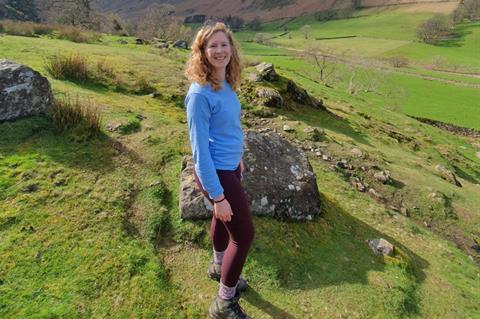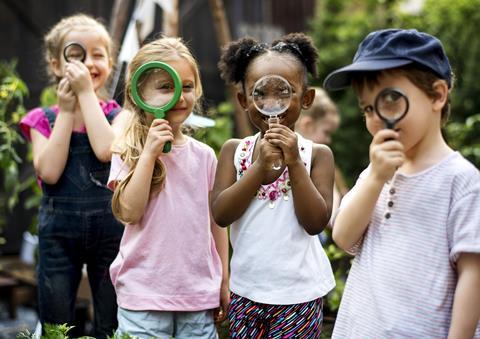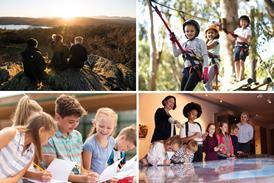The Field Studies Council has shared some top tips to help teachers improve outdoor residential experiences for children with hearing impairments.

The environmental education charity has shared the suggestions during Deaf Awareness Week (6th-12th May) and they are relevant year-round.
Jo Harris, the Field Studies Council’s (FSC) newly appointed head of education, said: “With so many young deaf children in mainstream schools we want teachers to feel confident about being able to support those learners with as many positive educational experiences as possible including outdoor residential and day trips.
“We understand that being away from school and home for a school trip either for one day or several days can seem a daunting prospect for all teachers and children and even more so for a child who has additional needs such as a hearing impairment.
“However, with some careful planning and greater awareness of the needs of deaf learners it is possible to make everyone feel comfortable and at ease so they can have a brilliant time and get the most out of the learning experience.”

Charlotte Pringle, 32, works as an admin and customer relations team lead for the charity and is based at the charity’s Epping Forest field centre which welcomes in the region of 38,000 learners a year.
She was diagnosed with a hearing impairment at the age of two and relies heavily on being able to lip-read.
She said: “My best bit of advice to teachers organising a school trip for any learner that has a hearing impairment is to ensure they are grouped with their friends – other children who know them and will be able to help them participate where information might be missed or misheard.”
Other useful tips for teachers
Before you go:
- Meet with family members in advance of the trip to discuss specific requirements, routines etc. and plans for the trip so an assessment can be made about suitable activities and adjustments planned for.
- Ensure all teachers involved in the school trip are aware of the child’s hearing impairment, their needs and how they like to communicate.
- Speak to external school trip providers in advance to discuss a child’s specific requirements. Many providers have staff who have undergone deaf awareness training or like us, employ people who have first-hand experience and know what it’s like to live with a hearing impairment.
- Talk to children about the trip in advance to reduce any anxiety and encourage questions.
- Learn some outdoor related sign language which might be useful especially if a student is high up on a climbing wall or doing a wet activity (or in the rain!) where hearing aids have been removed.
- Make sure in advance that you know how to assist a student who might need help removing their hearing aids or other technology for activities.

During the trip:
- Make sure the child knows that if they feel uncomfortable at any point they can discuss their concerns with you or another member of staff on the trip. Reassure them that you will maintain contact with home so that arrangements to either video call or text can be made if they start to feel homesick.
- Always try to be mindful of how different conditions, particularly outdoors, might impact on a child with hearing difficulties. For example, think about proximity to roads, weather conditions and other external factors which might interfere with hearing technology such as hearing aids.
- Different conditions can also impact on lip-reading. So make sure any speakers/instructors/tutors are made aware of where they position themselves.
Lorna Harvey is an education team leader also based at the Epping centre. The 45-year-old has always been hard of hearing and has worn hearing aids for the last 20 years. Her preferred method of communicating is lip reading but she says it can be challenging.
She said: “My best bit of advice for teachers is to be aware that lip reading and using hearing aids are tiring so by the end of the day learners will probably have less ability to understand and take on board instructions.”
Find out more about the Field Studies Council here.









